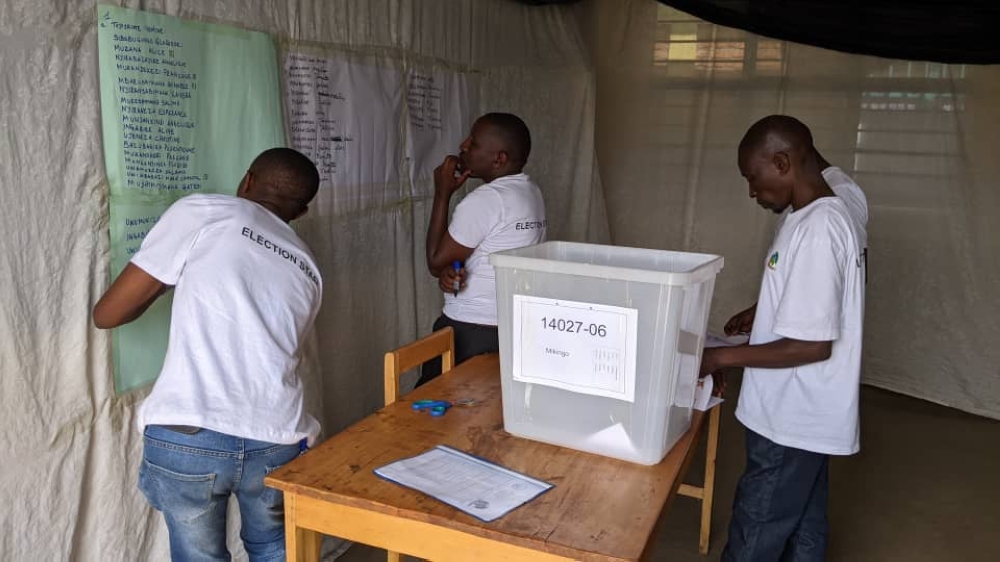

Vote counting started by 1:00p.m in most districts around the country as elections for parliamentary representatives of special interest groups; women, youth, and persons with disabilities, concluded, on Tuesday, July 16.
The polls for parliamentary representatives of special interest groups; women, youth, and persons with disabilities, kicked off countrywide on Tuesday, after the conclusion of the general presidential and parliamentary elections, two days earlier.
As vote counting continued earlier Monday evening, incumbent Paul Kagame appeared set for a resounding win. With over 7 million votes tallied on Monday night, Kagame had secured an astounding 99.15 per cent of the vote, leaving his opponents far behind, as the National Electoral Commission (NEC) reported a massive 98 per cent voter turnout, underscoring the election’s significance to Rwandans.
ALSO READ: Polls for women, youth, and persons with disability MPs underway
Unlike the general election in the diaspora and within the country, on Sunday and Monday, respectively, when every voting age Rwandan who was able to, voted, voting for the special interest groups candidates is a different affair. For the latter, electoral collages decide who becomes MP.
The special interest groups have 27 seats in the lower house; 24 seats for women, two for the youth, and one for people with disabilities.
ALSO READ: Youth parliamentary candidates asked to promote skills development
Women MPs are elected by their electoral college from village to national level, and persons with disabilities are elected by their electoral college from sector to national level. Polling stations for the youth will be set at the national level and they will be voted by electoral colleges from from district to the national level.
ALSO READ: Women parliamentary candidates asked to advocate for family promotion, gender equality
Among others, 199 female candidates qualified and are vying for 24 seats – through an indirect election system – reserved for women lawmakers in the Chamber of Deputies.
ALSO READ: How seats for 24 female lawmakers will be distributed
Thirteen candidates were vying for one seat to represent persons with disabilities in the Chamber of Deputies. In what is a first, two of the 13 parliamentary candidates representing persons with disabilities have speech and hearing impairment, according to the National Council of People with Disabilities (NCPD).


